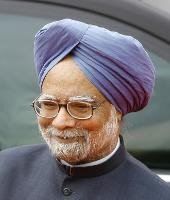U.S. President Barack Obama made a splash in India by announcing that Washington will back New Delhi's bid for a permanent seat on an expanded United Nations Security Council. It was a major policy shift that India has long clamored for and that the U.S. has long been reluctant to offer. As such, it warmed the hearts of Indian policymakers who have often viewed American support for the Security Council bid as a litmus test of the burgeoning U.S.-India partnership.
But in backing India's claim, Obama also raised some uncomfortable issues for Indian policymakers, making clear that Washington expects a newly empowered New Delhi to deal firmly with Iran and speak up on subjects like human rights violations in Myanmar.
That, in turn, speaks to a fundamental question that India has yet to answer. For all the talk of its rise in recent years, India has yet to define clearly what it stands for as an aspiring global power. Without that ideational mooring in place, India's claims to great power status are less likely to be seen as legitimate in the eyes of the world. Indian policymakers are increasingly coming to terms with their nation's rise, but there is still an absence of big ideas backed by political conviction to guide it. More worrisome still, there is also an intellectual vacuity in the debate on what being a great power means for India. When India was on the margins of world politics, it mattered little what India stood for. But now that India is rapidly assuming global stature, it needs to address the issue of the larger purpose behind its growing ambitions. India wants to rise, but what for?

